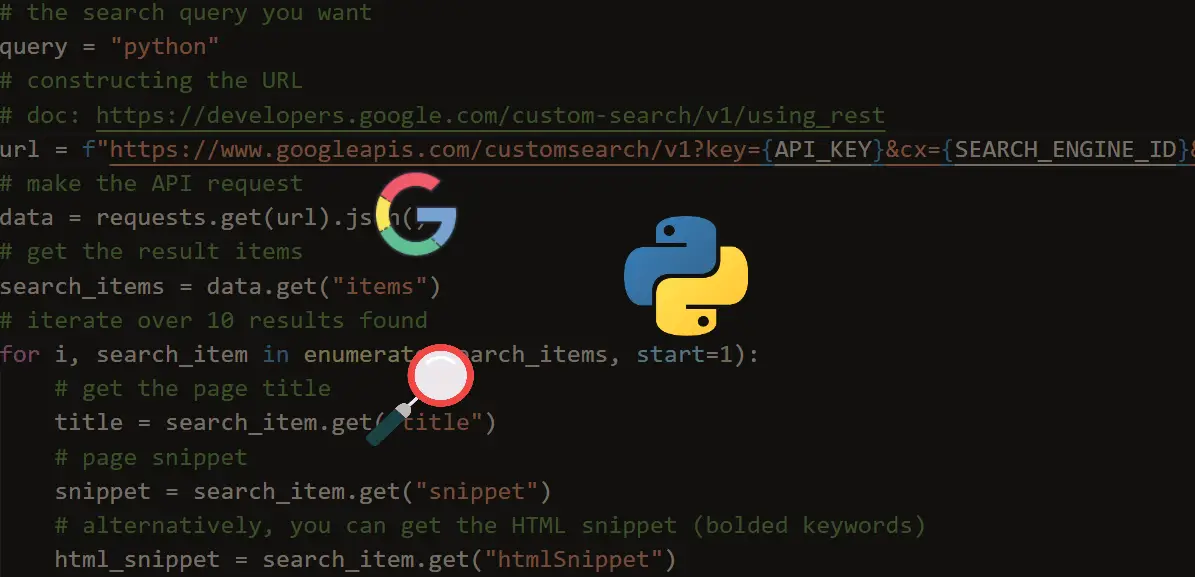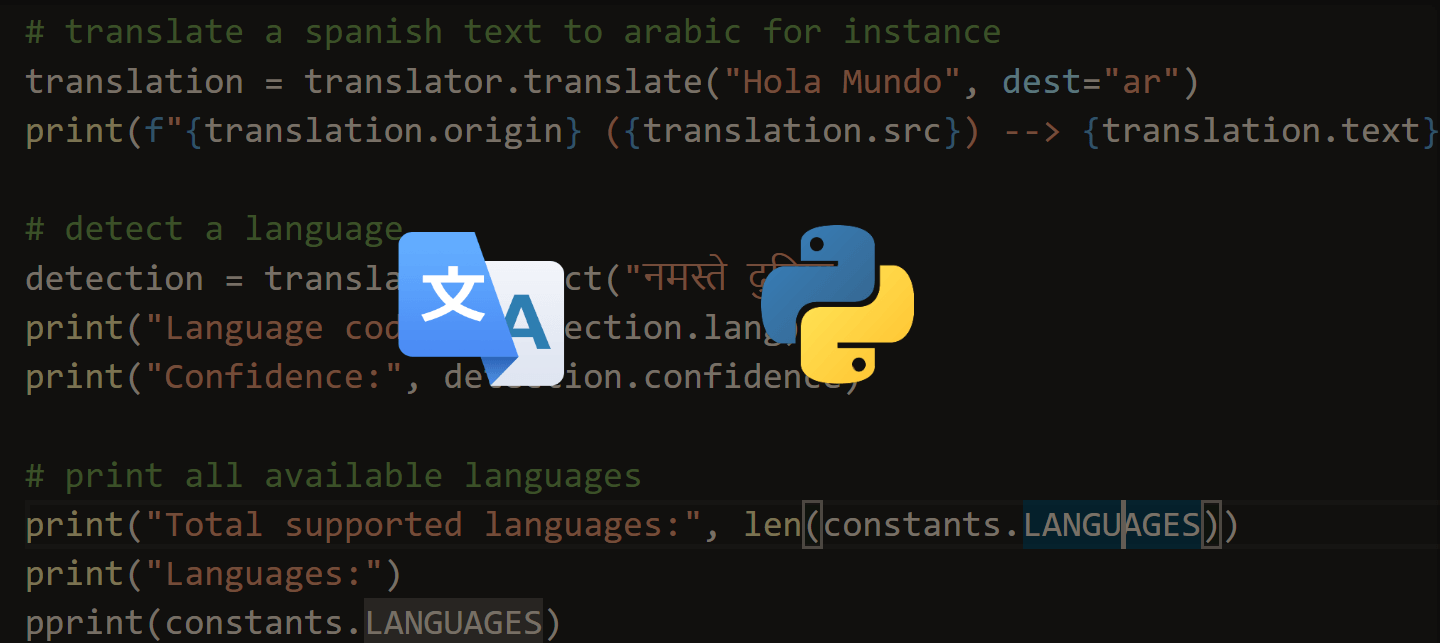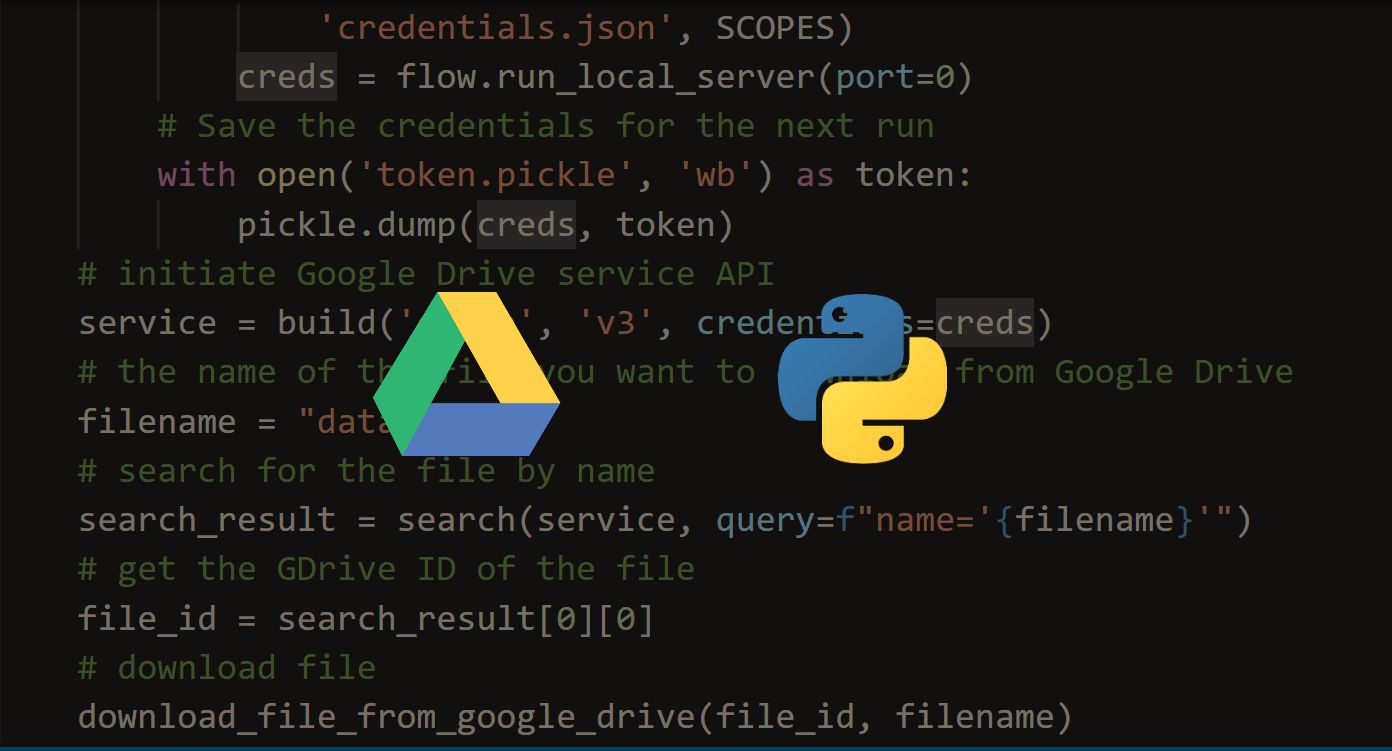Python How to Upload Data to Github
· 7 min read · Updated jul 2020 · Application Programming Interfaces
Github is a Git repository hosting service, in which it adds many of its own features such as web-based graphical interface to manage repositories, admission command and several other features, such as wikis, organizations, gists and more.
As you may already know, at that place is a ton of data to be grabbed. In this tutorial, you will larn how yous tin use Github API v3 in Python using both requests or PyGithub libraries.
To get started, let'southward install the dependencies:
pip3 install PyGithub requests Getting User Data
Since it'southward pretty straightforward to use Github API v3, yous tin make a simple Go request to a specific URL and retrieve the results:
import requests from pprint import pprint # github username username = "x4nth055" # url to request url = f"https://api.github.com/users/{username}" # make the asking and render the json user_data = requests.get(url).json() # pretty print JSON data pprint(user_data) Here I used my account, here is a role of the returned JSON (yous can see it in the browser also):
{'avatar_url': 'https://avatars3.githubusercontent.com/u/37851086?five=4', 'bio': None, 'blog': 'https://www.thepythoncode.com', 'company': None, 'created_at': '2018-03-27T21:49:04Z', 'email': None, 'events_url': 'https://api.github.com/users/x4nth055/events{/privacy}', 'followers': 93, 'followers_url': 'https://api.github.com/users/x4nth055/followers', 'following': 41, 'following_url': 'https://api.github.com/users/x4nth055/following{/other_user}', 'gists_url': 'https://api.github.com/users/x4nth055/gists{/gist_id}', 'gravatar_id': '', 'hireable': True, 'html_url': 'https://github.com/x4nth055', 'id': 37851086, 'login': 'x4nth055', 'proper name': 'Rockikz', <..SNIPPED..> A lot of data, that'due south why using requests library alone won't be handy to extract this ton of information manually, every bit a result, PyGithub comes into the rescue.
Getting Public Repositories of a User
Let's get all the public repositories of that user using PyGithub library we but installed:
import base64 from github import Github from pprint import pprint # Github username username = "x4nth055" # pygithub object g = Github() # become that user past username user = g.get_user(username) for repo in user.get_repos(): print(repo) Hither is my output:
Repository(full_name="x4nth055/aind2-rnn") Repository(full_name="x4nth055/awesome-algeria") Repository(full_name="x4nth055/emotion-recognition-using-speech") Repository(full_name="x4nth055/emotion-recognition-using-text") Repository(full_name="x4nth055/nutrient-reviews-sentiment-analysis") Repository(full_name="x4nth055/hrk") Repository(full_name="x4nth055/lp_simplex") Repository(full_name="x4nth055/cost-prediction") Repository(full_name="x4nth055/product_recommendation") Repository(full_name="x4nth055/pythoncode-tutorials") Repository(full_name="x4nth055/sentiment_analysis_naive_bayes") Alright, then I made a simple function to extract some useful information from this Repository object:
def print_repo(repo): # repository total proper name impress("Full name:", repo.full_name) # repository description impress("Description:", repo.description) # the date of when the repo was created print("Date created:", repo.created_at) # the date of the last git button print("Date of terminal push:", repo.pushed_at) # home website (if available) print("Abode Page:", repo.homepage) # programming linguistic communication print("Linguistic communication:", repo.language) # number of forks print("Number of forks:", repo.forks) # number of stars print("Number of stars:", repo.stargazers_count) print("-"*50) # repository content (files & directories) print("Contents:") for content in repo.get_contents(""): print(content) try: # repo license print("License:", base64.b64decode(repo.get_license().content.encode()).decode()) except: laissez passer Repository object has a lot of other fields, I suggest you use dir(repo) to go the fields you want to impress. Let'south iterate over repositories over again and use the function nosotros simply wrote:
# iterate over all public repositories for repo in user.get_repos(): print_repo(repo) print("="*100) This will print some information about each public repository of this user:
==================================================================================================== Full name: x4nth055/pythoncode-tutorials Clarification: The Python Lawmaking Tutorials Date created: 2019-07-29 12:35:40 Date of last push: 2020-04-02 15:12:38 Dwelling house Page: https://www.thepythoncode.com Language: Python Number of forks: 154 Number of stars: 150 -------------------------------------------------- Contents: ContentFile(path="LICENSE") ContentFile(path="README.doctor") ContentFile(path="upstanding-hacking") ContentFile(path="general") ContentFile(path="images") ContentFile(path="machine-learning") ContentFile(path="python-standard-library") ContentFile(path="scapy") ContentFile(path="web-scraping") License: MIT License <..SNIPPED..> I've truncated the whole output, as it will return all repositories and their information, you tin see we used repo.get_contents("") method to retrieve all the files and folders of that repository, PyGithub parses it into a ContentFile object, utilise dir(content) to run into other useful fields.
Also, if you have private repositories, you can admission them by authenticating your business relationship (using the correct credentials) using PyGithub as follows:
username = "username" password = "password" # authenticate to github m = Github(username, password) # get the authenticated user user = g.get_user() for repo in user.get_repos(): print_repo(repo) It is besides suggested by Github to use the authenticated requests, as it will raise a RateLimitExceededException if you use the public one (without authentication) and exceed a pocket-size number of requests.
Searching for Repositories
The Github API is quite rich, you can search for repositories past a specific query just like you practise in the website:
# search repositories by proper name for repo in g.search_repositories("pythoncode tutorials"): # print repository details print_repo(repo) This volition return ix repositories and their information.
You tin can also search by programming language or topic:
# search past programming language for i, repo in enumerate(g.search_repositories("language:python")): print_repo(repo) impress("="*100) if i == 9: suspension To search for a item topic, you simply put something like "topic:car-learning" in search_repositories() method .
Manipulating Files in your Repository
If you're using the authenticated version, yous can also create, update and delete files very hands using the API:
# searching for my repository repo = thou.search_repositories("pythoncode tutorials")[0] # create a file and commit n button repo.create_file("test.txt", "commit message", "content of the file") # delete that created file contents = repo.get_contents("test.txt") repo.delete_file(contents.path, "remove examination.txt", contents.sha) The to a higher place code is a uncomplicated use case, I searched for a particular repository, I've added a new file and called it test.txt, I put some content int it and made a commit. After that, I grabbed the content of that new file and deleted it (and it'll count as a git commit as well).
And sure plenty, after the execution of the above lines of code, the commits were created and pushed:
 Determination
Determination
Nosotros have just scratched the surface in the Github API, in that location are a lot of other functions and methods you can utilise and obviously, nosotros can't embrace all of them, here are some useful ones you lot tin test them on your ain:
- g.get_organization(login): Returns an Organization object that stand for a Github organization
- thou.get_gist(id): Returns a Gist object which it represents a gist in Github
- 1000.search_code(query): Returns a paginated listing of ContentFile objects in which information technology represent matched files on several repositories
- g.search_topics(query): Returns a paginated listing of Topic objects in which information technology represent a Github topic
- chiliad.search_commits(query): Returns a paginated list of Commit objects in which it represents a commit in Github
There are a lot more, please use dir(g) to get other methods, check PyGithub documentation, or the Github API for detailed data.
Learn likewise: How to Use Google Custom Search Engine API in Python.
Happy Coding ♥
View Full Lawmaking
Read Also



Comment console
Source: https://www.thepythoncode.com/article/using-github-api-in-python
Belum ada Komentar untuk "Python How to Upload Data to Github"
Posting Komentar